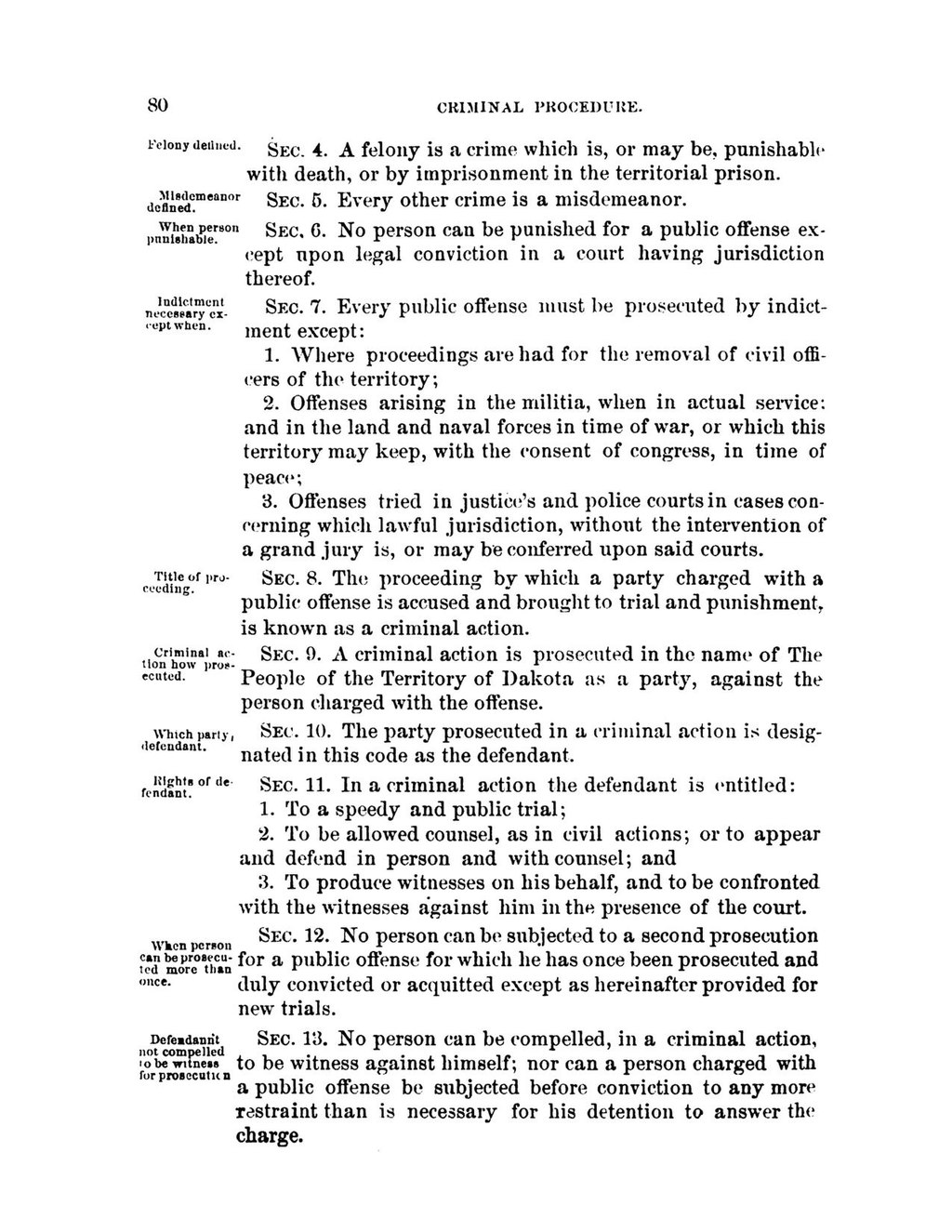Sec. 4. A felony is a crime which is, or may be, punishable with death, or by imprisonment in the territorial prison.
Sec. 5. Every other crime is a misdemeanor.
Sec. 6. No person can be punished for a public offense except upon legal conviction in a court having jurisdiction thereof.
Sec. 7. Every public offense must be prosecuted by indictment except:
1. Where proceedings are had for the removal of civil officers of the territory;
2. Offenses arising in the militia, when in actual service: and in the land and naval forces in time of war, or which this territory may keep, with the consent of congress, in time of peace;
3. Offenses tried in justices and police courts in cases concerning which lawful jurisdiction, without the intervention of a grand jury is, or may be conferred upon said courts.
Sec. 8. The proceeding by which a party charged with a public offense is accused and brought to trial and punishment, is known as a criminal action.
Sec. 9. A criminal action is prosecuted in the name of The People of the Territory of Dakota as a party, against the person charged with the offense.
Sec. 10. The party prosecuted in a criminal action is designated in this code as the defendant.
Sec. 11. In a criminal action the defendant is entitled:
1. To a speedy and public trial;
2. To be allowed counsel, as in civil actions; or to appear and defend in person and with counsel; and
3. To produce witnesses on his behalf, and to be confronted with the witnesses against him in the presence of the court.
Sec. 12. No person can be subjected to a second prosecution for a public offense for which he has once been prosecuted and duly convicted or acquitted except as hereinafter provided for new trials.
Sec. 13. No person can be compelled, in a criminal action, to be witness to be witness against himself; nor can a person charged with a public offense be subjected before conviction to any more restraint than is necessary for his detention to answer the charge.
